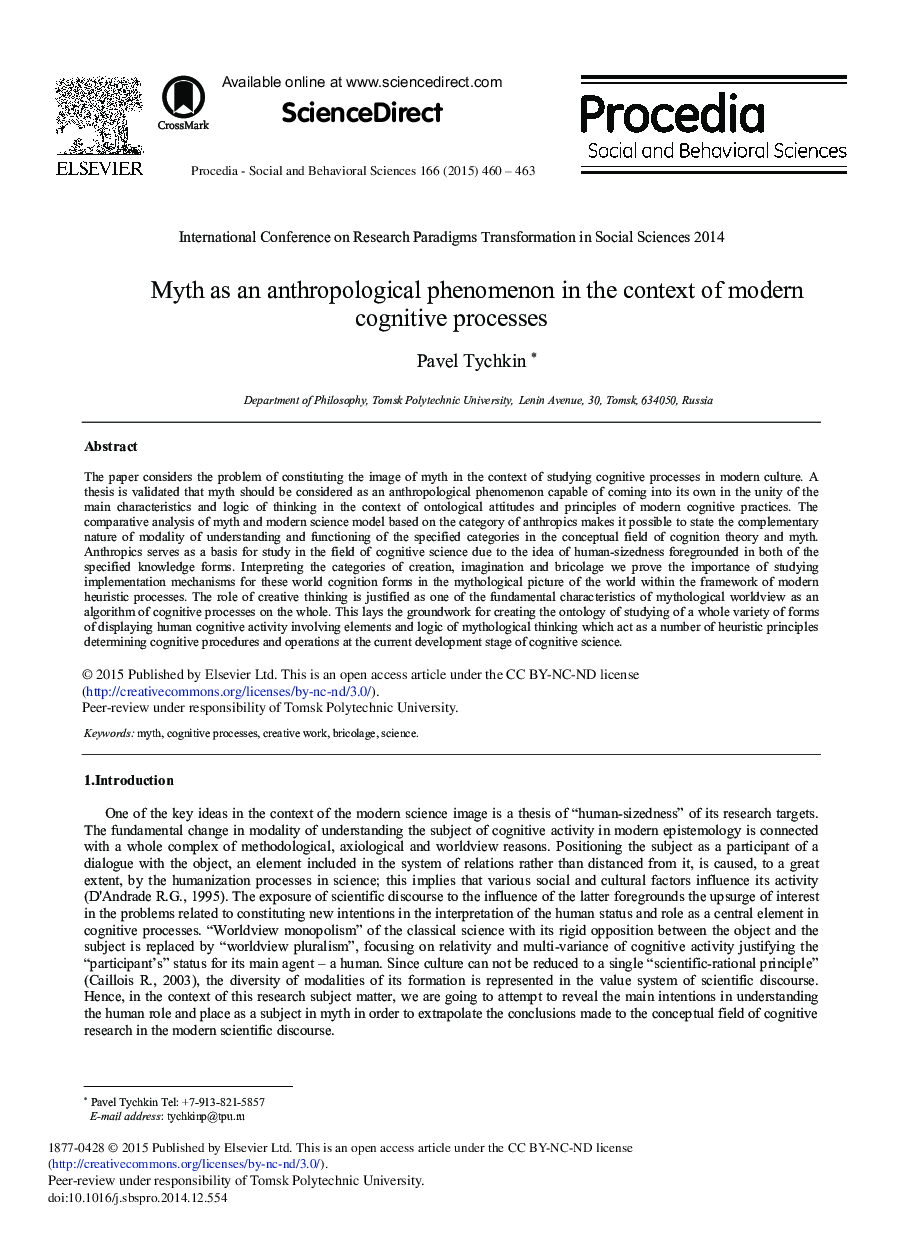| کد مقاله | کد نشریه | سال انتشار | مقاله انگلیسی | نسخه تمام متن |
|---|---|---|---|---|
| 1111953 | 1488393 | 2015 | 4 صفحه PDF | دانلود رایگان |
The paper considers the problem of constituting the image of myth in the context of studying cognitive processes in modern culture. A thesis is validated that myth should be considered as an anthropological phenomenon capable of coming into its own in the unity of the main characteristics and logic of thinking in the context of ontological attitudes and principles of modern cognitive practices. The comparative analysis of myth and modern science model based on the category of anthropics makes it possible to state the complementary nature of modality of understanding and functioning of the specified categories in the conceptual field of cognition theory and myth. Anthropics serves as a basis for study in the field of cognitive science due to the idea of human-sizedness foregrounded in both of the specified knowledge forms. Interpreting the categories of creation, imagination and bricolage we prove the importance of studying implementation mechanisms for these world cognition forms in the mythological picture of the world within the framework of modern heuristic processes. The role of creative thinking is justified as one of the fundamental characteristics of mythological worldview as an algorithm of cognitive processes on the whole. This lays the groundwork for creating the ontology of studying of a whole variety of forms of displaying human cognitive activity involving elements and logic of mythological thinking which act as a number of heuristic principles determining cognitive procedures and operations at the current development stage of cognitive science.
Journal: Procedia - Social and Behavioral Sciences - Volume 166, 7 January 2015, Pages 460-463
